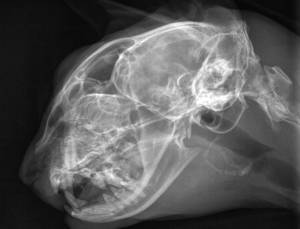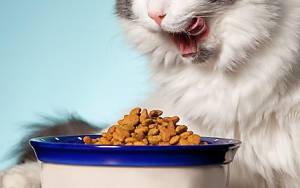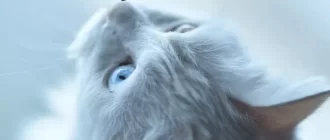Overfeeding is a common issue that many pet owners may unknowingly engage in. While it may seem like an act of love and care, overfeeding pets, including cats, can lead to various health problems in the long run. One such health condition that can be triggered by overfeeding is diabetes.
Diabetes in cats is similar to diabetes in humans. It occurs when the body is unable to properly regulate blood sugar levels due to either a lack of insulin production or the body’s inability to use insulin effectively. Overfeeding a cat can contribute to both types of diabetes: Type 1 and Type 2.

Type 1 diabetes occurs when the pancreas produces little or no insulin. This form of diabetes is more common in dogs than cats. However, overfeeding can indirectly impact the cat’s pancreas function by causing obesity, which puts extra stress on the organ. The excess weight can lead to insulin resistance, making it difficult for the pancreas to keep up with the demand for insulin production.
Type 2 diabetes, on the other hand, is more prevalent in cats and develops primarily due to obesity. Overfeeding a cat leads to excessive calorie intake, resulting in weight gain. An overweight cat has a higher risk of developing Type 2 diabetes because excessive body fat can interfere with insulin’s ability to regulate blood sugar levels.
Moreover, overfeeding can also cause lethargy and reduced physical activity in cats, further contributing to weight gain and obesity. The combination of obesity and a sedentary lifestyle creates an ideal environment for diabetes to develop.
To prevent overfeeding and the risk of diabetes in your cat, it’s essential to establish a proper feeding routine. Consult with your veterinarian to determine the appropriate amount of food based on your cat’s size, breed, age, and activity level. Feeding portion-controlled meals at designated times throughout the day can help maintain a healthy weight and prevent overeating.
Another important aspect of cat health is exercise. Engage your cat in regular playtime and encourage physical activity to keep them active and burn calories. This can help prevent weight gain and reduce the risk of diabetes.
In conclusion, overfeeding a cat can indeed contribute to the development of diabetes. Both Type 1 and Type 2 diabetes can be triggered by overfeeding, as it can lead to obesity and insulin resistance. To ensure your cat’s well-being and reduce the risk of diabetes, it is crucial to provide a balanced diet in appropriate portions while promoting regular exercise. Always consult with your veterinarian for personalized advice and guidance for your furry friend’s dietary needs.






